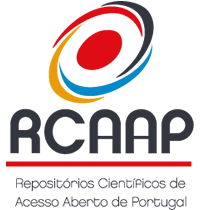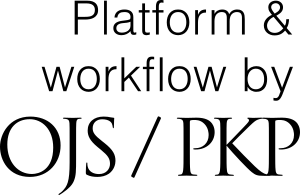From registration to teaching – how Vet-OncoNet contributes to the training of veterinary doctors
DOI:
https://doi.org/10.48797/sl.2025.359Keywords:
Invited SpeakerAbstract
Background: Vet-OncoNet [1] is a national platform in Portugal dedicated to collecting and analyzing data on animal neoplasms, driven by a One Health vision. More than a database, Vet-OncoNet is a collaborative ecosystem connecting veterinary professionals, academic institutions, and laboratories to improve animal health, promote comparative oncology, and drive data-informed decision-making [2-4]. Objective: This presentation aims to demonstrate how Vet-OncoNet contributes to the academic training of future veterinary doctors at the Institute of Biomedical Sciences Abel Salazar (ICBAS), University of Porto. Methods and Experience: Vet-OncoNet actively collaborates with undergraduate students enrolled in the Epidemiology course at ICBAS. Students engage in hands-on learning by exploring real-world data, formulating hypotheses, conducting descriptive analyses of selected tumors, and presenting their findings in a final monograph. Through this experience, students strengthen their skills in Excel (including pivot tables and basic analytics), Power BI, and even ArcGIS for geospatial visualization. Moreover, final-year students undertake curricular internships within Vet-OncoNet, allowing them to deepen their understanding of the Evidence-Based Veterinary Medicine (EBVM) cycle—Ask, Acquire, Appraise, Apply, and Act. These students participate in multidisciplinary projects using R-based tools, including RShiny applications, and begin to explore the integration of artificial intelligence solutions in veterinary data analysis. So far 3 PhD collaborations, 2 MSc Thesis, 5 final graduation integrated masters UP, 16 monographs have been produced. At the master’s level, students from both Oncology and Public Health programs collaborate with Vet-OncoNet in various research areas. These include the analysis of the national companion animal registry (SIAC) [5,6] and oncology [7] and comparative studies [8] involving both animal and human data. These experiences foster critical thinking, scientific communication, and advanced data analysis skills, preparing students for evidence-based and data-driven veterinary careers. Conclusions: This project places veterinary students at the intersection of animal health and the expanding field of data science, equipping them with practical tools and critical thinking skills essential for modern evidence-based practice. Thus, Vet-OncoNet is not just a database—it’s a living tool, driven by the One Health vision, connecting science, society, and education.References
1. Pinello K, Pires I, Castro AF, Carvalho PT, Santos A, de Matos A, Queiroga F, Niza-Ribeiro J. Vet-OncoNet: Developing a Network of Veterinary Oncology and Reporting a Pioneering Portuguese Experience. Vet Sci. 2022 Feb 7;9(2):72. doi: 10.3390/vetsci9020072.
2. Pinello K, Amorim I, Pires I, Canadas-Sousa A, Catarino J, Faísca P, Branco S, Peleteiro MC, Silva D, Severo M, Niza-Ribeiro J. Vet-OncoNet: Malignancy Analysis of Neoplasms in Dogs and Cats. Vet Sci. 2022 Sep 28;9(10):535. doi: 10.3390/vetsci9100535.
3. Pinello K, Pires I, Castro AF, Carvalho PT, Santos A, de Matos A, Queiroga F, Canadas-Sousa A, Dias-Pereira P, Catarino J, Faísca P, Branco S, Lopes C, Marcos F, Peleteiro MC, Pissarra H, Ruivo P, Magalhães R, Severo M, Niza-Ribeiro J. Cross Species Analysis and Comparison of Tumors in Dogs and Cats, by Age, Sex, Topography and Main Morphologies. Data from Vet-OncoNet. Vet Sci. 2022 Mar 31;9(4):167. doi: 10.3390/vetsci9040167.
4. Pinello K, Baldassarre V, Steiger K, Paciello O, Pires I, Laufer-Amorim R, Oevermann A, Niza-Ribeiro J, Aresu L, Rous B, Znaor A, Cree IA, Guscetti F, Palmieri C, Dagli MLZ. Vet-ICD-O-Canine-1, a System for Coding Canine Neoplasms Based on the Human ICD-O-3.2. Cancers (Basel). 2022 Mar 16;14(6):1529. doi: 10.3390/cancers14061529.
5. Pinello K, Geraz H, Salgueiro HS, Cabral E, Vieira E, Mendonça D, Severo M, Ribeiro AI, Niza-Ribeiro J. Socio-geographic and demographic analysis of the official national registry data of dogs' population in Portugal in 2023. Data from SIAC. Vet J. 2025 Apr 9;312:106349. doi: 10.1016/j.tvjl.2025.106349
6. Geraz H, Pinello K, Mendonça D, Severo M, Niza-Ribeiro J. Investigating the Life Expectancy at Birth of Companion Dogs in Portugal Using Official National Registry Data. Animals (Basel). 2024 Jul 23;14(15):2141. doi: 10.3390/ani14152141. PMID: 39123667;
7. Catarino J, Pinello K, Niza-Ribeiro J, Santos J, Payan-Carreira R, Reis J, Faísca P. Exploring canine mast cell tumors: An investigation into demographic characteristics, and grading system analysis from a pathology lab data (2019-2021). Prev Vet Med. 2025 Mar;236:106416. doi: 10.1016/j.prevetmed.2025.106416.
8. Carvalho PT, Niza-Ribeiro J, Amorim I, Queiroga F, Severo M, Ribeiro AI, Pinello K. Comparative epidemiological study of breast cancer in humans and canine mammary tumors: insights from Portugal. Front Vet Sci. 2023 Nov 30;10:1271097. doi: 10.3389/fvets.2023.1271097.
Downloads
Published
How to Cite
Issue
Section
License
Copyright (c) 2025 Katia Pinello, João Niza-Ribeiro

This work is licensed under a Creative Commons Attribution 4.0 International License.
In Scientific Letters, articles are published under a CC-BY license (Creative Commons Attribution 4.0 International License), the most open license available. The users can share (copy and redistribute the material in any medium or format) and adapt (remix, transform, and build upon the material for any purpose, even commercially), as long as they give appropriate credit, provide a link to the license, and indicate if changes were made (read the full text of the license terms and conditions of use).
The author is the owner of the copyright.









